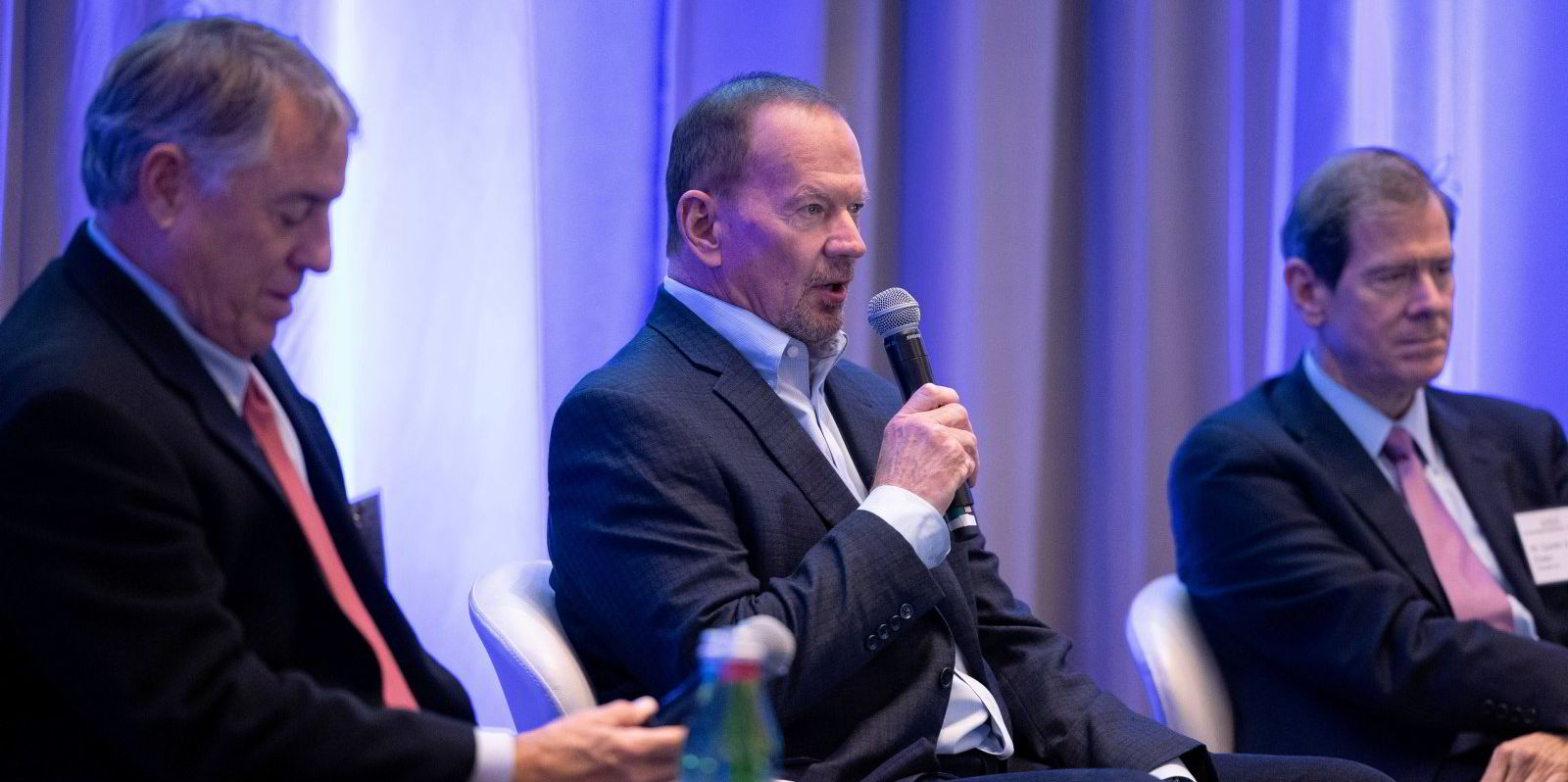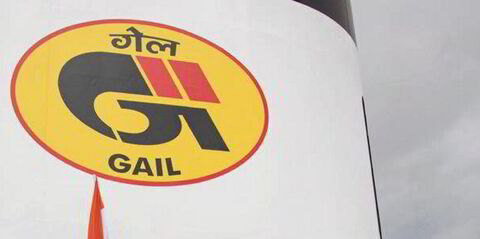Is Navios Maritime Partners’ “abysmal” stock valuation linked to principal Angeliki Frangou’s efforts to take private sister company Navios Maritime Holdings on the cheap?
The question is being raised by an activist holder in Navios Partners, and for a change, it’s not US investor “disgruntled” Ned Sherwood.
This time it is J Mintzmyer, founder of buy-side research outfit Value Investor’s Edge. He is not only throwing in with a recent activist letter from 5.4% holder Sherwood, but arguably raising the stakes with his suggestion of a conflict in Frangou’s pursuit of the Navios Holdings privatisation.
At the same time, Mintzmyer is recommending his followers consider buying into Navios Partners, on prospects that its valuation will improve based on activist pressures, Frangou’s increasing stake in the company and an improving dry bulk market.
Navios Holdings on 23 October announced a definitive merger agreement under which Frangou — who is CEO and chairwoman of the company — would acquire the outfit for $2.28 per share in cash. The deal is subject to a shareholder vote expected to happen no later than the first quarter of next year.
Navios Holdings had about 22.83m shares outstanding at the last report. Mintzmyer contemplates the implications of Navios Maritime Partners trading at its net asset value (NAV), which he estimates at $99 per share, rather than its current price of around $25.
Mintzmyer refers to the companies by their stock ticker symbols: NM in Navios Holdings’ case and NMM for Navios Partners.
“NM’s valuation could have ballooned from the $2s into the $10s! It could therefore be argued that keeping NMM trading at a pittance of ‘true value’ could be critical to a longer-term goal of privatising NM,” Mintzmyer wrote of the Frangou acquisition.
The researcher-investor goes on to suggest a reason that Navios Partners’ valuation could improve once the merger is completed.

‘Silver lining’
“While Ms Frangou’s ongoing takeover of NM appears to be destined for success, there is a silver lining in these otherwise dark clouds: once NM is gone, Ms Frangou’s direct ownership in NMM is set to balloon from roughly 5.1% (1.55m units reported in early 2003) to roughly 15.6% (1.55m plus NM’s 3.18m units),” Mintzmyer wrote.
“Once Ms Frangou owns all of NM and her stake has more than tripled, there is increased incentive to drive NMM closer to its ‘proper’ valuation range of somewhere between $99 and $117,” he added, citing his own estimate of Navios Partners’ NAV and the higher figure from investment bank Jefferies.
TradeWinds approached Navios Partners for comment on Mintzmyer’s analysis. Chief operating officer Stratos Desypris said he could not comment on the Navios Holdings aspect because of the pending merger.
However, he referred to Navios Holdings’ most recent press release on the matter. It points out that the $2.28 per share price is improved from the initial bid of $1.84, and represents a 43% premium to the stock’s closing price on 12 September, the day before the original offer.
In other aspects of a lengthy analysis, Mintzmyer largely endorses Sherwood’s attacks against Navios Partners in his 28 November open letter to the Navios board.
These include the deeply discounted share price, a scant dividend payout ratio of 1.2% or $0.40 per share over the past two years and a decision to pursue ship purchases at 100% of NAV rather than buying back shares at perhaps 25% of NAV.
Mintzmyer also adopts Sherwood’s view that fees and commissions payable to Frangou’s privately owned management company represent a conflict of interest.
“It might appear that Ms Frangou is more likely to improve her fortunes by growing the fleet rather than by boosting NMM’s shareholder returns or by increasing NMM’s trading price,” Mintzmyer wrote.
The researcher endorsed Sherwood’s call that Navios Partners buy the private management outfit and operate it within the listed company.
Long-term reward
Desypris offered a general defence of Navios Partners’ direction in an email to TradeWinds.
Over more than two years, management has communicated to shareholders its priorities of reducing debt and increasing liquidity on the balance sheet, he said.
“In a dynamic rate-based market, we have maintained these priorities, materially increasing cash on our balance sheet while also maintaining contracted revenue at a relatively constant state,” he said.
At the same time, Desypris said Navios has reduced fleet size by about 5% while targeting younger, greener tonnage. “We believe that these actions will reward in the long term.”





